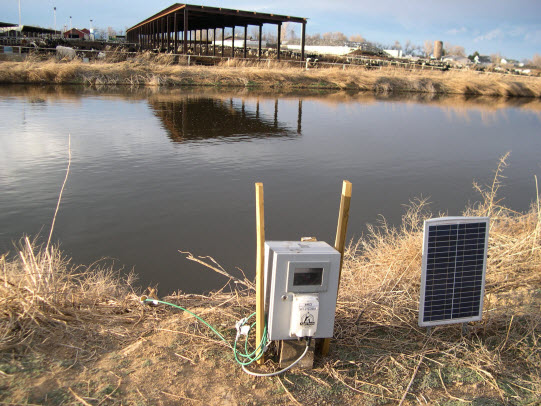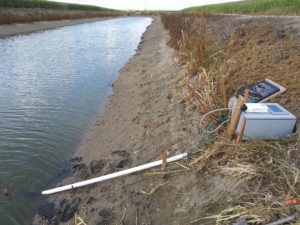In Colorado, impoundments that store runoff and process generated wastewater from CAFOs and AFOs must meet a 1 x 10-6 cm/second seepage requirement. The requirement, which is specified in Regulation 81, is there to protect groundwater quality. And while protecting groundwater is the most important aspect of the seepage requirement, it also serves to preserve wastewater for land application.
As every agricultural producer in Colorado knows – water is precious! Wastewater, if handled and applied properly, not only provides a source of irrigation water for crops or forage, but also is a source of valuable nutrients for crops, such as Nitrogen, Phosphorus, trace minerals, and organic matter.

While confined livestock operations are required to have impoundment liners that meet a very low seepage rate, others – like homeowners associations, irrigation districts, municipalities and rural landowners may want to know the seepage rate of their freshwater ponds and lakes in order to preserve as much of their allotted water as possible.
Brink, Inc. has been testing impoundment liners for nearly two decades and we have three (3) different test methods available to use depending on the application. Testing usually takes 2 to 4 weeks, and upon completion, the customer is provided with a statement of the seepage rate certified by a Colorado-registered Professional Engineer.
If you would like to know how much water your pond, lake, wastewater impoundment or concrete structure is losing via seepage, contact us to schedule a test.


